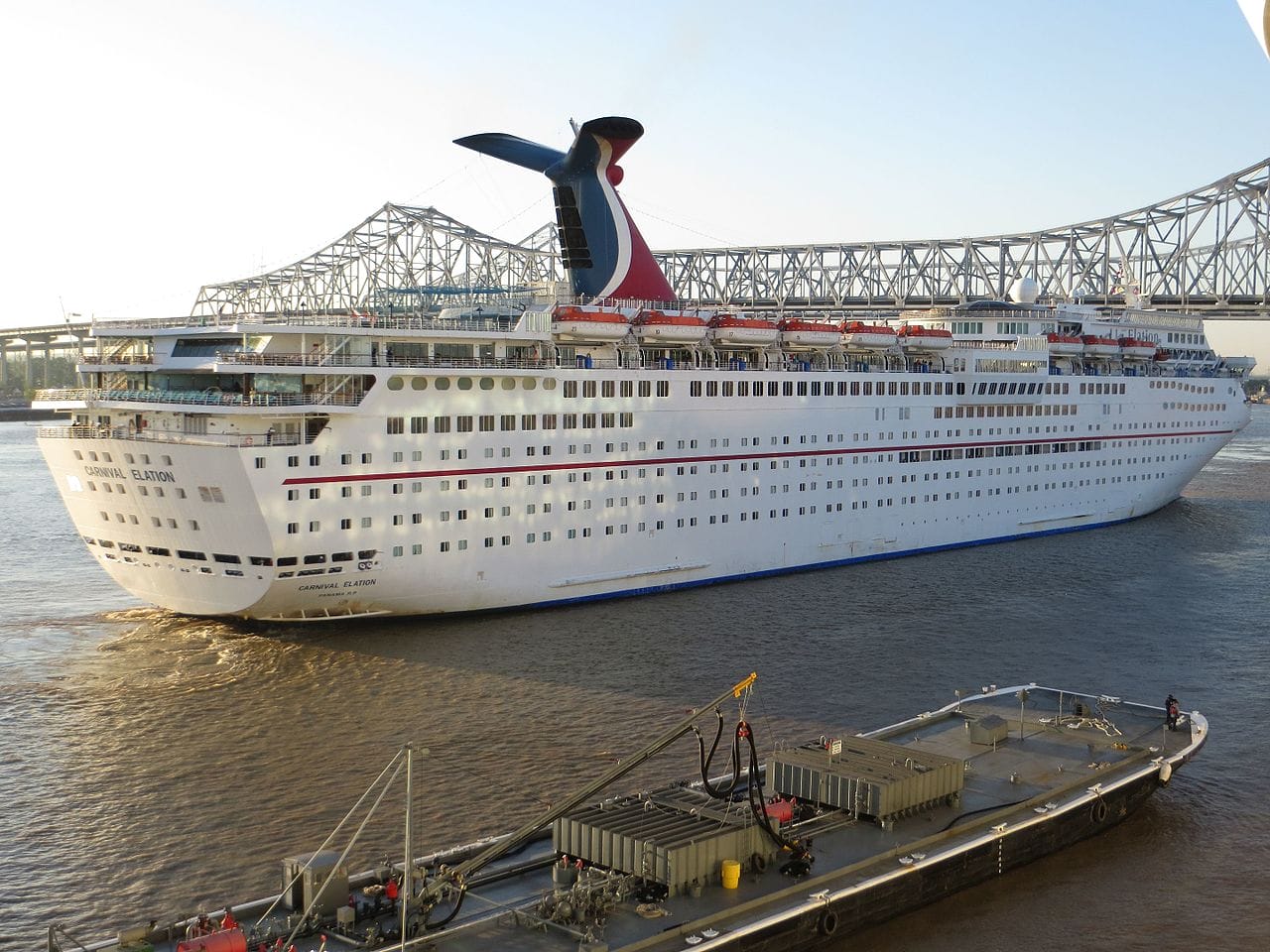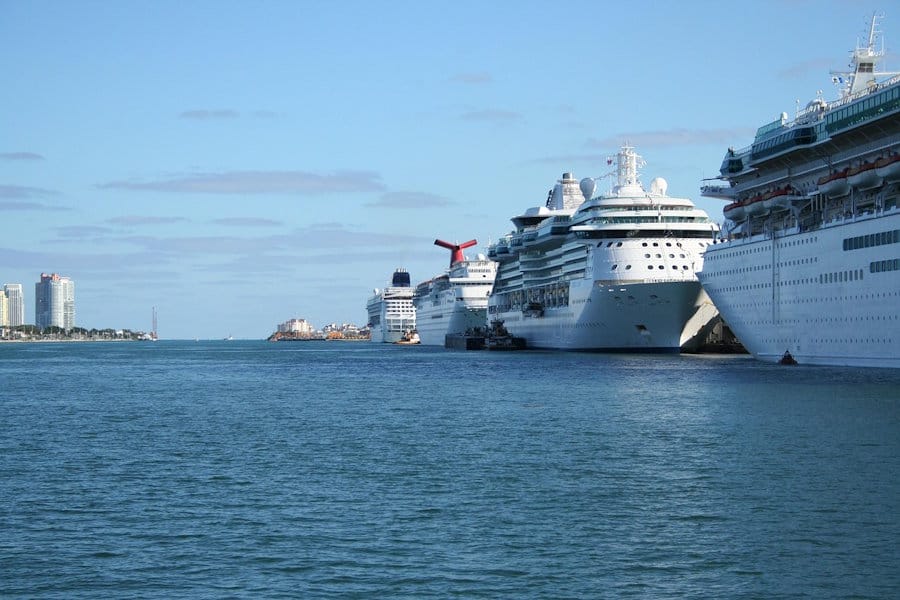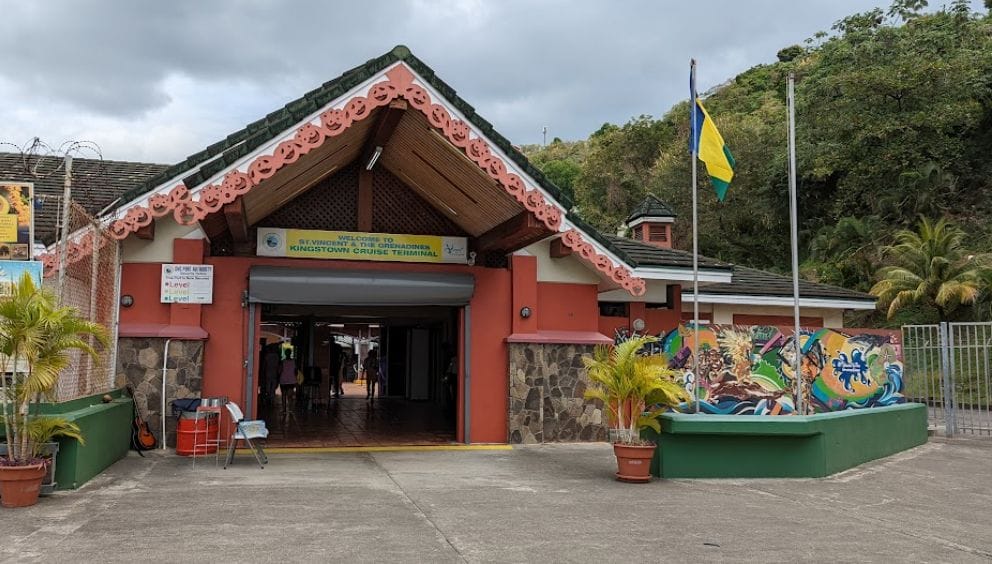Home » Do cruise ships have morgues?
Do cruise ships have morgues?
Updated May 6th, 2025
Look around on your next cruise – it’s common to see elderly people or those in seemingly poor health. Some choose to have one last trip as their health is failing or they’ve got a terminal illness.
Introduction to Onboard Morgues
Cruise ships, often seen as floating havens of luxury and entertainment, are equipped to handle serious situations, including the rare event of a passenger or crew member’s death. Modern vessels, functioning as self-contained communities, include morgues to manage such incidents discreetly.
These facilities, mandated by international maritime regulations like the Safety of Life at Sea Convention, ensure preparedness for emergencies. Large ships, like Royal Caribbean’s Oasis-class vessels, carry thousands and have morgues designed to accommodate several bodies, reflecting their onboard population scale.
Why Morgues Are Necessary
Cruise ships host diverse passengers, including many elderly or those with health conditions, increasing the chance of natural deaths. With millions cruising annually, around 200 deaths occur industry-wide, mainly from heart attacks or strokes.
Morgues allow ships to store remains respectfully until reaching a port. This is vital on long voyages, such as transatlantic crossings on Cunard’s Queen Mary 2, where immediate disembarkation is not feasible.
Morgues ensure compliance with legal standards and maintain a calm atmosphere for other guests, preserving the vacation experience.
Morgue Locations and Design
Morgues are located on the lowest decks, often along crew corridors, away from passenger areas like dining rooms or theaters.
These refrigerated, stainless steel rooms are compact, typically holding three to six bodies. Larger ships, like those of Norwegian Cruise Line, may accommodate up to ten. Morgues are positioned near medical facilities for efficient handling but separate from food storage for hygiene.
The discreet placement ensures guests remain unaware, maintaining the carefree vacation environment throughout the cruise.
Procedures for Handling Deaths
When a death occurs, the ship’s medical team, staffed by experienced doctors and nurses, confirms the passing and determines the cause. For natural deaths, the body is wrapped in a body bag, as required by federal regulations, and stored in the morgue until reaching a port.
For example, on a Caribbean cruise, remains might be offloaded in a major port like Miami, where local authorities issue a death certificate. Suspicious deaths, such as a rare allergic reaction case on a Carnival ship, trigger investigations involving port authorities or the FBI for U.S.-bound ships.
The cruise line assists families with logistics, including contacting next of kin or arranging repatriation, handled sensitively to minimize distress.
Discretion and Communication
Cruise lines prioritize discretion to avoid unsettling passengers. Coded announcements, like “operation rising star,” are used internally to communicate deaths without causing alarm.
Crew members are trained to handle these situations quietly, ensuring the vacation atmosphere remains intact. Families are informed privately, and support is provided with compassion.
This approach maintains the serene environment, allowing guests to enjoy activities like shows or shore excursions without disruption.
Morgue Capacity and Contingencies
Morgues are designed to handle typical needs, but rare cases of exceeded capacity, as seen on a transatlantic cruise, may require temporary use of alternative refrigerated spaces.
Such instances are exceptional and carefully managed to meet health and safety standards. Cruise lines plan for these scenarios, ensuring all situations are handled respectfully. This preparation underscores their commitment to passenger and crew well-being, even in rare circumstances.
Support for Families
Cruise lines offer support to families of the deceased. They assist with paperwork, such as death certificates, and coordinate repatriation or travel arrangements for loved ones. Some lines, like Princess Cruises, provide onboard memorial services or ash-scattering ceremonies for previously cremated remains.
These options allow families to honor their loved ones meaningfully. Staff ensure these processes are handled with care, providing emotional and logistical support during a difficult time.
Regulatory Compliance
Morgues are mandated by international maritime laws, including the Safety of Life at Sea Convention. These regulations require ships to have facilities for handling deaths, ensuring compliance with health and safety standards.
Cruise lines work with port authorities to meet local requirements for body transfers or investigations. This adherence to global standards ensures operations remain lawful and respectful, protecting both passengers and the cruise line.
Medical Team’s Role
The onboard medical team plays a critical role in managing deaths. Doctors and nurses, trained in emergency medicine, assess the situation and document the cause of death.
They coordinate with the morgue staff to ensure proper storage and handling. For unexpected deaths, they provide detailed reports to authorities. Their expertise ensures that all procedures are conducted professionally, maintaining dignity for the deceased and support for their families.
Impact on Passenger Experience
Cruise lines strive to minimize the impact of a death on other passengers. By handling incidents discreetly, they ensure guests can continue enjoying gourmet dining, live entertainment, or port visits.
Staff are trained to maintain normal operations, such as pool activities or spa services, without disruption. This careful management allows the cruise to remain a joyful experience for all onboard, even during sensitive situations.
Planning for Rare Events
Cruise lines prepare extensively for rare events like deaths. Crew undergo training in crisis management, including handling morgue procedures. Emergency drills cover scenarios involving medical evacuations or body storage.
Passengers are not typically informed of these preparations, as they are seamlessly integrated into ship operations. This planning ensures that even rare incidents are managed efficiently, maintaining safety and comfort for everyone.
Cultural and Religious Considerations
Cruise lines respect cultural and religious practices when handling deaths. Staff consult with families to accommodate specific rituals or requirements, such as body preparation or memorial services.
Some ships offer multi-faith chapels for private ceremonies. This sensitivity ensures that diverse passenger needs are met, providing comfort and respect during a challenging time.
Legal and Ethical Responsibilities
Cruise lines have legal obligations to report deaths to appropriate authorities, such as port officials or consulates. Ethical responsibilities include treating the deceased with dignity and supporting families.
Transparent communication with authorities ensures compliance with international laws. These responsibilities are balanced with maintaining a positive guest experience, reflecting the cruise line’s commitment to care and professionalism.
Passenger Awareness and Preparation
Passengers are rarely aware of morgues, as cruise lines keep these facilities out of sight. The morgue is the last place you want to visit on a cruise ship, you might wonder: Do cruise ships have doctors onboard? Yes, they do! And the article tells you what you can expect from onboard medical help.
If you are going on a cruise, you should be carrying medical records, medications, and travel insurance covering medical evacuations is advisable. Consulting a doctor before cruising, especially for those with chronic conditions, ensures readiness. These steps align with cruise lines’ efforts to prioritize safety.
Collaboration with Port Authorities
When a death occurs, cruise lines collaborate with port authorities to manage legal and logistical aspects. This includes arranging body transfers, completing paperwork, or facilitating investigations for suspicious cases.
Major ports, like Miami or Barcelona, have established protocols for such events. This coordination ensures smooth handling of remains and compliance with local regulations, minimizing delays for the ship and passengers.
Emotional Support for Crew
Handling a death can be emotionally taxing for crew members. Cruise lines provide counseling or debriefing sessions to support staff. This ensures they remain focused and professional while managing sensitive situations.
Crew well-being is a priority, as their performance directly impacts the guest experience, from dining service to entertainment coordination.
Final Thoughts
Cruise ship morgues, though rarely discussed, are essential for managing the rare event of a death at sea. Well-trained medical teams, discreet facilities, and strict regulations ensure these situations are handled respectfully.
Passengers can enjoy their journey, from exploring exotic ports to relaxing under starlit skies, knowing every eventuality is managed with care. By preparing for these sensitive scenarios, cruise lines maintain safety and comfort, allowing travelers to focus on their vacation.
RECENT POSTS

Discover the Cruise Ports of Eastern Canada & Quebec

Inside the Worst Cruise Lines: Lowest-Rated Ships and Why They Disappoint

Snorkeling in Cozumel: A Cruise Passenger’s Guide for Your Port Day

How to Make the Most of a Short Port Stop in Cozumel

Cruise Ship Ports in Florida

Which Cruise Line is Best? We Compared to Find Out
Advertisement


